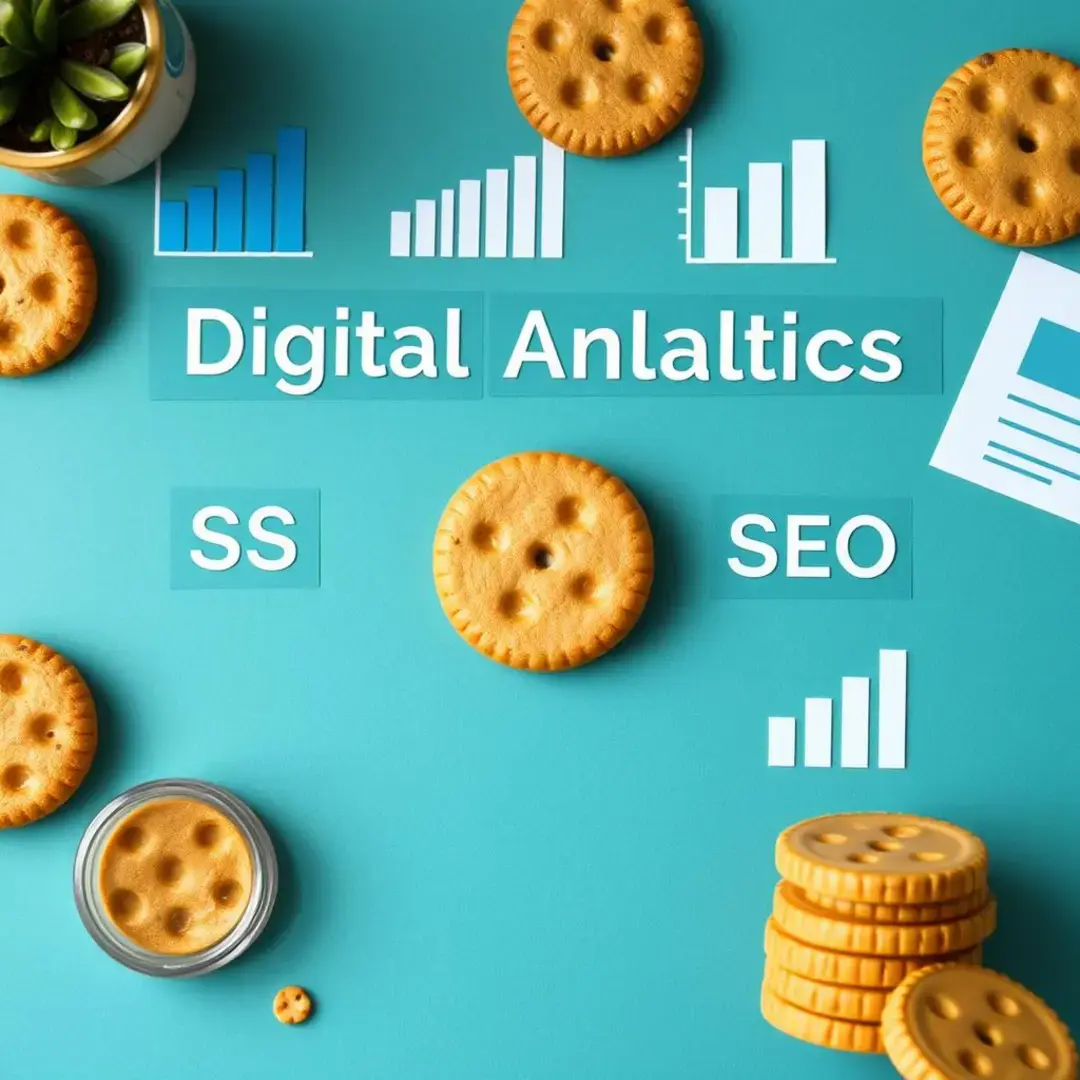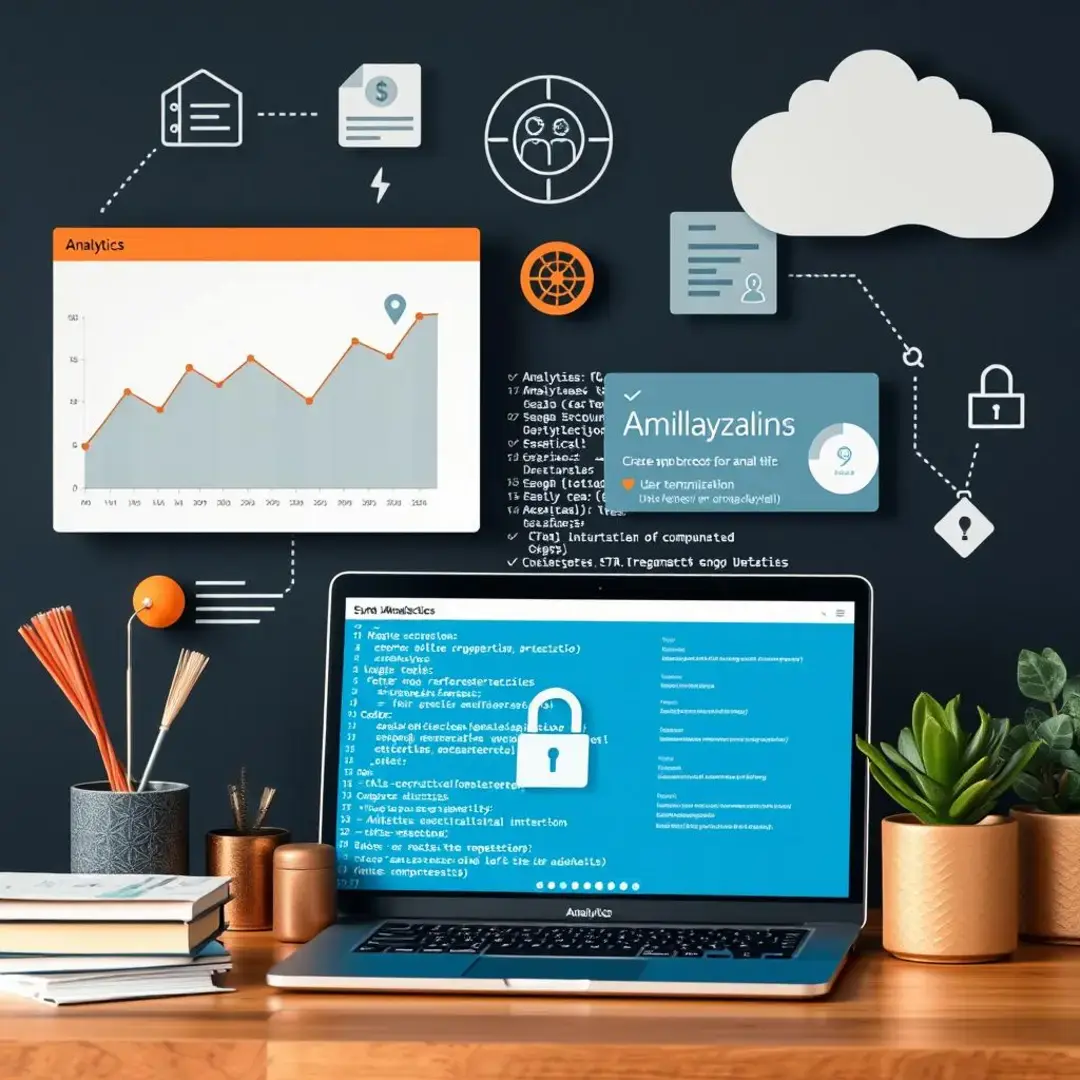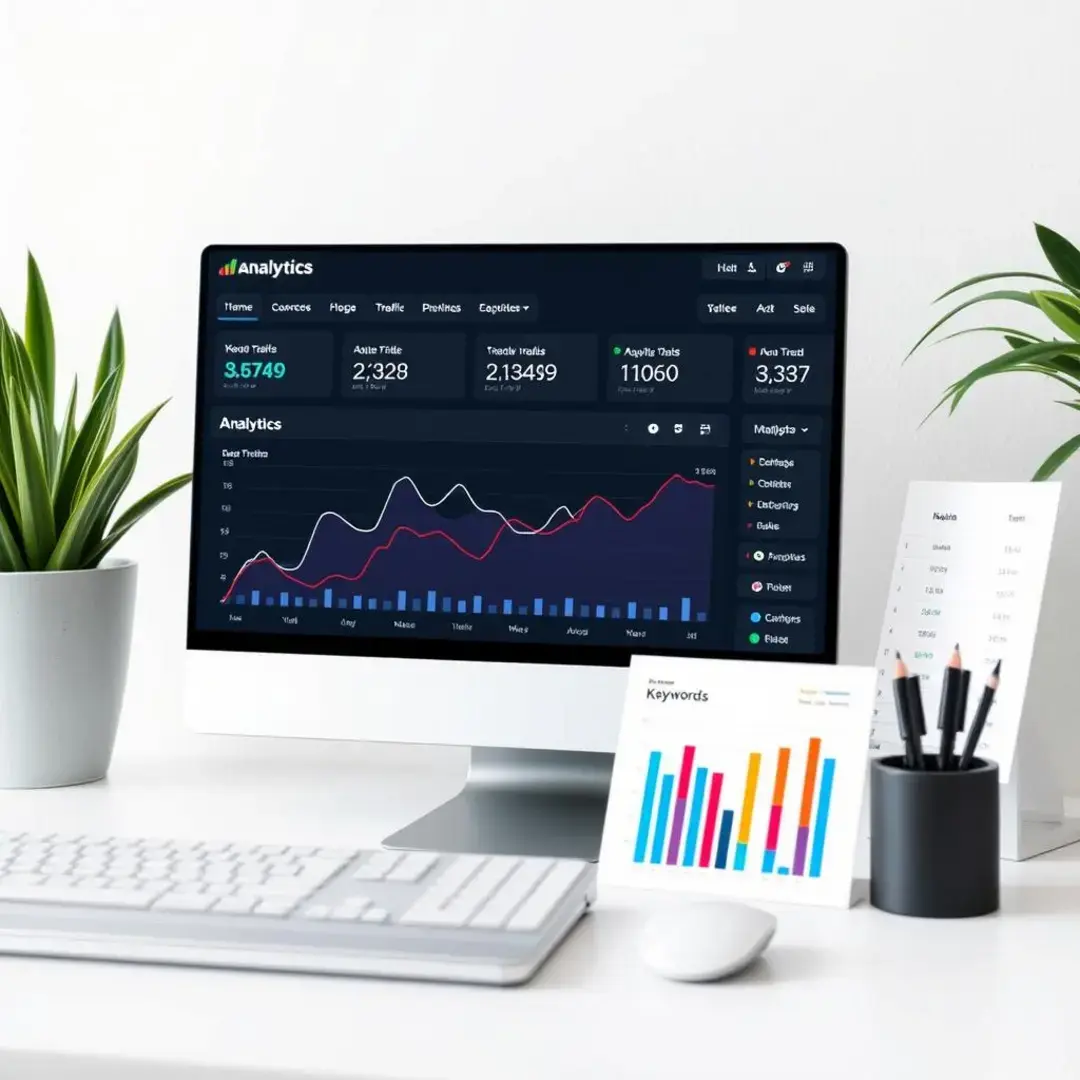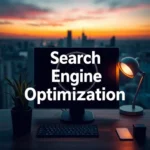How SEO strategies help in a cookieless world
Understanding the cookieless landscape

The demise of third-party cookies
As the digital landscape evolves, the phase-out of third-party cookies is setting new challenges for marketers. These small pieces of code, once crucial for tracking user behavior and personalizing ads, are becoming obsolete. This transition means that advertisers must pivot their strategies, relying less on tracking individuals across the web and more on understanding broader trends. While the switch may initially feel daunting, it also provides an opportunity to rethink how we engage with customers in a more meaningful way.
The removal of third-party cookies poses significant hurdles for both advertisers and publishers. Advertisers may struggle to gain insights into user preferences, making it harder to create targeted campaigns. Publishers also face declining advertising revenue as personalized ads as we know them dissipate. Many businesses are now challenged to find innovative ways to reach their audiences without infringing on privacy, making it essential to discover alternative avenues for engagement.
The rise of first-party data
In the cookieless world, first-party data has emerged as a valuable asset. This type of data—collected directly from users through their interactions with your brand—provides clearer insights into customer behavior. Developing a robust first-party data strategy involves creating touchpoints where customers willingly share information; this can include email sign-ups, surveys, or personalized experiences. By cultivating these interactions, businesses can build a comprehensive picture of their audience.
Owning your audience data not only fosters trust but also empowers marketers with more accurate insights. When you control the data, it minimizes reliance on external sources, allowing for deeper engagement with your customers. Furthermore, this ownership enables tailored messaging that aligns with user preferences. Ultimately, this strengthens customer relationships and enhances the effectiveness of your marketing campaigns.
Privacy regulations and their influence
With the increasing focus on privacy, regulations like GDPR and CCPA are profoundly influencing digital marketing strategies. These laws empower consumers with rights concerning their data, thereby urging marketers to adopt transparent practices. Businesses must ensure compliance not only to avoid hefty fines but also to build trust with their audience. By prioritizing data protection, brands can differentiate themselves as responsible entities in the digital marketplace.
Striking harmony between user privacy and effective advertising is a formidable task in this evolving landscape. Businesses are tasked with developing strategies that respect and protect users while still delivering highly relevant marketing messages. Focusing on ethical data usage and transparent communication can foster a sense of trust, leading to improved customer loyalty. This balance will be crucial for businesses aiming to thrive in a cookieless environment.
Advanced SEO tactics for a cookieless future

Contextual advertising and semantic SEO
As traditional cookies phase out, contextual advertising paired with semantic SEO becomes vital. This strategy emphasizes the relevance of content, focusing on related topics and keywords rather than relying solely on user interests. By building topic clusters that address user intent, businesses can enhance their relevance in search engines. This improvement not only drives organic traffic but also positions brands as knowledgeable resources within their niches.
Creating content that resonates with user intent is key to effective SEO. It requires understanding the motivations behind users’ searches and crafting pages that meet these needs directly. By creating high-quality, informative content, businesses can ensure they appear prominently in search results, ultimately driving more relevant traffic. This approach will prove invaluable in a cookieless world, where personalization must take a different form.
Federated learning of cohorts (FLoC) and its alternatives
Federated Learning of Cohorts (FLoC) is one approach being explored as an alternative to traditional tracking methods. This technique allows groups of users to be analyzed rather than individuals, preserving privacy while still enabling targeted advertising. Such solutions could become essential in serving relevant ads without infringing on user privacy; hence, advertisers must stay informed about emerging alternatives. Exploring these technologies will equip marketers to make savvy decisions about their advertising approaches.
While FLoC presents a potential pathway, it is vital to evaluate its effectiveness continually. Marketers must monitor performance metrics and user engagement to determine whether these solutions meet their objectives. Simultaneously, staying attuned to feedback from privacy advocates and regulatory bodies is crucial to ensure compliance and public acceptance. This careful balancing act will shape how successful FLoC and similar technologies can be in the longer term.
Advanced techniques for leveraging first-party data
Utilizing first-party data to create personalized experiences is an effective tactic in a cookieless world. By analyzing user behavior on your site, businesses can tailor content and recommendations that resonate with individual users. This level of personalization fosters deeper engagement and can significantly enhance conversion rates. As users increasingly seek authentic connections, leveraging first-party data becomes paramount for successful marketing.
Advanced segmentation allows businesses to categorize audiences based on diverse criteria, including purchase history and browsing behavior. By adopting this approach, marketers can hone in on specific segments to deliver more relevant content. This targeted strategy enhances the efficiency of marketing efforts and ensures that communications are meaningful, thereby elevating brand interactions. Ultimately, effectively utilizing first-party data will be critical for businesses aspiring to succeed in the evolving digital landscape.
Technical SEO considerations in a cookieless world

Optimizing website speed and performance
Website speed and performance play a crucial role in SEO, especially in a cookieless world. Google’s Core Web Vitals measure how users perceive the experience of interacting with a web page, focusing on aspects like loading performance and interactivity. This means you need to prioritize website optimization; if a page loads slowly, users are more likely to abandon it. Enhancing the user experience will not only improve SEO but also contribute to higher retention rates.
To enhance page load times, consider optimizing images, minimizing server response times, and leveraging browser caching. Each of these strategies contributes to a smoother user experience, lowering bounce rates and increasing engagement. Additionally, tools like Google PageSpeed Insights can help identify areas for improvement. By focusing on these technical aspects, businesses can improve overall SEO performance and retain more visitors on their sites.
Structured data and schema markup
Implementing structured data and schema markup helps search engines better understand your content. This can lead to rich snippets—enhanced results that display additional information about your pages—in search engine results pages (SERPs). Rich snippets can significantly increase visibility, thereby driving more organic traffic to your site. Consequently, prioritizing schema markup is a technical SEO consideration that shouldn’t be overlooked in a cookieless environment.
Beyond just visibility, schema markup can also lead to improved click-through rates. Users are drawn to rich snippets, as they provide valuable information at a glance. For instance, having ratings or reviews displayed can instill confidence in potential customers and encourage clicks. By leveraging structured data effectively, businesses are more likely to attract qualified traffic, crucial for thriving in a cookieless future.
Server-side tagging and its benefits
Server-side tagging presents a way to manage data collection while respecting user privacy. By processing data on the server rather than the client, businesses gain greater control over the information collected. This approach not only enhances security but also enables compliance with privacy regulations. As a result, server-side tagging can be a valuable strategy in navigating the challenges of a cookieless world.
Another significant advantage of server-side tagging is the improved security it offers. By minimizing the amount of code running on the client side, there’s a reduced risk of exposure to malicious attacks. Additionally, enhanced user privacy builds trust between businesses and their customers. As the digital landscape continues to evolve, prioritizing security and privacy will become increasingly important for brand reputation and customer retention.
Measuring SEO success in a cookieless environment

Focusing on holistic metrics
In a cookieless world, businesses must evolve their measurement strategies beyond conventional metrics. Relying solely on clicks and conversions may not paint the complete picture of user engagement. Instead, a holistic approach that encompasses metrics such as user engagement, bounce rates, and dwell time can provide deeper insights. This strategy ensures that you understand not just whether users are clicking, but how they are interacting with your content.
Engagement metrics offer key insights into how users interact with your website, while brand awareness measures the effectiveness of your marketing. Additionally, understanding customer lifetime value (CLV) allows businesses to gauge the long-term profitability of acquiring new customers. By focusing on these comprehensive metrics, marketers can optimize their strategies to better resonate with their audiences. This shift will be vital to navigating the complexities of a cookieless future.
Utilizing privacy-focused analytics platforms
Choosing the right analytics platforms is essential for accurate measurement in a cookieless world. Privacy-focused solutions provide insights without compromising user data, aligning with emerging privacy regulations. By exploring these alternatives, businesses can ensure they collect meaningful data responsibly. As the landscape shifts, adapting analytics strategies to these privacy considerations will be crucial for measurable success.
Data accuracy is paramount; relying on privacy-focused analytics will support compliance with regulations like GDPR and CCPA. Ensuring adherence to these laws will foster trust and maintain a positive brand reputation. From tracking user behavior to measuring campaign effectiveness, businesses must ensure they can confidently validate results while upholding privacy standards. This practice is essential for sustaining meaningful customer relationships in a cookieless environment.
Adapting to the evolving landscape
The digital landscape is dynamic, necessitating that businesses remain agile and adaptable to change. Staying abreast of the latest SEO trends and technologies is essential for creating effective strategies. Continuous learning and innovation will help brands navigate the challenges posed by a cookieless environment. Establishing a culture that embraces ongoing adaptation is vital for long-term success.
Finally, businesses must commit to regularly optimizing their SEO strategies to reflect changing conditions. This process includes reviewing performance metrics, adjusting content strategies, and enhancing website experiences. By continuously refining approaches, companies can adapt to the evolving digital landscape successfully. This proactive mindset will equip brands to not just survive but thrive in a cookieless world.













